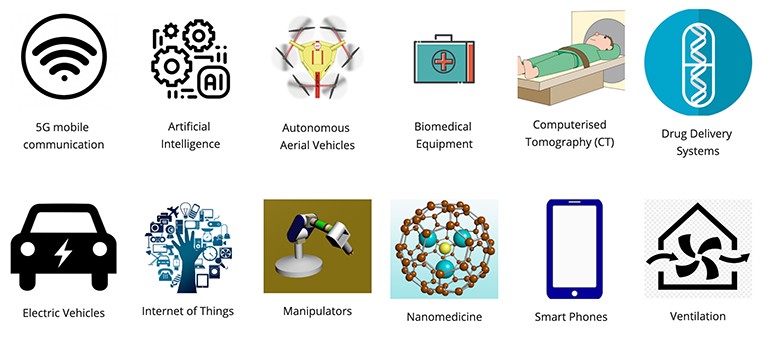Concordia students explore the impacts of technology during the COVID-19 pandemic

Students at Concordia's Gina Cody School of Engineering and Computer Science devote most of their degree studies to specialized courses focused on technical training and design for their chosen fields.
But there are a few classes required for everyone, including Impacts of Technology on Society (ENGR 392). As the title suggests, the course aims to sensitize future engineers to the social and environmental problems caused by unexpected effects of technology.
The most recent cohort to complete the course, which was taught by Gita Ghiasi (PhD 18), saw students exploring the impact of technologies heavily used in the last year because of the COVD-19 pandemic — while engaging in their coursework using these same technologies.
Ghiasi asked students to use a data-driven approach to understand the impact of these technologies, especially as they relate to gender.
A senior research advisor at Université du Montréal and the Institute for Data Valorisation in Montreal, Ghiasi is an engineer with a deep interest in the intersections of gender and technology. Her research investigates inequitable practices in science and technology with the focus on gender and international development.
Ghiasi is also a senior member of the newly established EDI Lab and closely collaborates with Tanja Tajmel, associate professor and Concordia University Research Chair in Equity, Diversity and Inclusion in Science, Technology, Engineering and Mathematics.
“By applying a data-driven approach to develop an understanding of gender equality, students were able to make the connection between the social impacts of popular technology and gain a better understanding of how what they design as engineers may have unintended impacts,” she explains.
The project’s main goal was to teach students mechanisms and tools to map the relationship of one technology with society and to show that speculations and hype around this relationship often are far from reality. This project was relevant because revenue, productivity and product demand of Canadian industries at the focus of these technologies were negatively affected by the COVID-19 pandemic.
After completing readings on politics of technology, its assessment and how it is governed — or not — through policy, students chose their research topics and created a scientific report and data visualization to report their findings.
The result was a new understanding of how prolific these technologies are.
‘I gained a new perspective’
Shangirna Rajaratnam is a computer engineering student whose group focused their project on virtual machines. “I always thought virtual machines were related to scientific and technical services,” she says. “Through research using the StatCan database, my team found out that the mining, quarrying and oil and gas extraction industry use virtual machines.”
“I gained a new perspective on the injustices and inequalities that women experience in the workforce, but mostly in engineering that I was oblivious to,” explains Andrew Tylkowski, an electrical engineering student who worked on virtual machines with Rajaratnam. “It never occurred to me that my female colleagues might live a different reality than mine.”
Natasha Morham, an environmental engineering student, and Kate Roche, a mechanical engineering student, looked at 5G mobile communication. They found that even the networks that support cellular communications will have hidden impacts.
“It is all a big invisible web that can only be seen when looked for,” Roche notes. “And without thorough analysis, a seemingly harmless technological development can negatively affect gender gaps, wages, unemployment, the economy and other technologies.”
By the end, students from all engineering disciplines gained a new perspective and skillset.
“My biggest takeaway is being able to identify the impact of technologies on society through the observations of bibliometric information, data analysis and historical examination,” says Amanda Kolopanis, a software engineering student who researched contact tracing applications.
Ghiasi was surprised how open her students were to discussing issues of equality and how they dove into topics such as ethics, gender equality, governance, open access, public engagement and science education.
“I am so proud of what these students have created, especially in the context of the COVID-19 pandemic,” she says.
“I am so proud that I want to share their works with all Concordians and make our community also proud of how these engineering students responsibly reflect on technologies in pandemic times.”
Learn more about Impacts of Technology on Society students’ projects.
Learn more about Concordia’s Centre for Engineering in Society.



